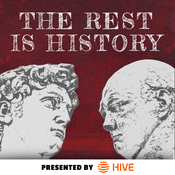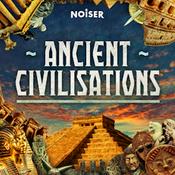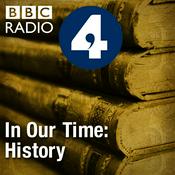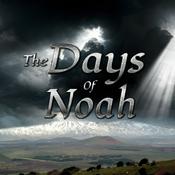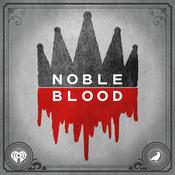10 episodes

Lyndon Johnson - January 14, 1969 - Presidential Speeches
2023/11/08 | 44 mins.
This content was created in partnership and with the help of Artificial Intelligence AI

Lyndon B. Johnson - Remarks upon Signing the Civil Rights Bill - Presidential Speeches
2023/11/06 | 27 mins.
My fellow Americans:I am about to sign into law the Civil Rights Act of 1964. I want to take this occasion to talk to you about what that law means to every American.One hundred and eighty-eight years ago this week a small band of valiant men began a long struggle for freedom. They pledged their lives, their fortunes, and their sacred honor not only to found a nation, but to forge an ideal of freedom—not only for political independence, but for personal liberty—not only to eliminate foreign rule, but to establish the rule of justice in the affairs of men.That struggle was a turning point in our history. Today in far corners of distant continents, the ideals of those American patriots still shape the struggles of men who hunger for freedom.This is a proud triumph. Yet those who founded our country knew that freedom would be secure only if each generation fought to renew and enlarge its meaning. From the minutemen at Concord to the soldiers in Viet-Nam, each generation has been equal to that trust.Americans of every race and color have died in battle to protect our freedom. Americans of every race and color have worked to build a nation of widening opportunities. Now our generation of Americans has been called on to continue the unending search for justice within our own borders.We believe that all men are created equal. Yet many are denied equal treatment.We believe that all men have certain unalienable rights. Yet many Americans do not enjoy those rights.We believe that all men are entitled to the blessings of liberty. Yet millions are being deprived of those blessings—not because of their own failures, but because of the color of their skin.The reasons are deeply imbedded in history and tradition and the nature of man. We can understand—without rancor or hatred—how this all happened.But it cannot continue. Our Constitution, the foundation of our Republic, forbids it. The principles of our freedom forbid it. Morality forbids it. And the law I will sign tonight forbids it.That law is the product of months of the most careful debate and discussion. It was proposed more than one year ago by our late and beloved President John F. Kennedy. It received the bipartisan support of more than two-thirds of the Members of both the House and the Senate. An overwhelming majority of Republicans as well as Democrats voted for it.It has received the thoughtful support of tens of thousands of civic and religious leaders in all parts of this Nation. And it is supported by the great majority of the American people.The purpose of the law is simple.It does not restrict the freedom of any American, so long as he respects the rights of others.It does not give special treatment to any citizen.It does say the only limit to a man's hope for happiness, and for the future of his children, shall be his own ability.It does say that there are those who are equal before God shall now also be equal in the polling booths, in the classrooms, in the factories, and in hotels, restaurants, movie theaters, and other places that provide service to the public.I am taking steps to implement the law under my constitutional obligation to "take care that the laws are faithfully executed."First, I will send to the Senate my nomination of LeRoy Collins to be Director of the Community Relations Service. Governor Collins will bring the experience of a long career of distinguished public service to the task of helping communities solve problems of human relations through reason and commonsense.Second, I shall appoint an advisory committee of distinguished Americans to assist Governor Collins in his assignment.Third, I am sending Congress a request for supplemental appropriations to pay for necessary costs of implementing the law, and asking for immediate action.Fourth, already today in a meeting of my Cabinet this afternoon I directed the agencies of this Government to fully discharge the new responsibilities imposed upon them by the law and to do it without delay, and to keep me personally informed of their progress.Fifth, I am asking appropriate officials to meet with representative groups to promote greater understanding of the law and to achieve a spirit of compliance.We must not approach the observance and enforcement of this law in a vengeful spirit. Its purpose is not to punish. Its purpose is not to divide, but to end divisions—divisions which have all lasted too long. Its purpose is national, not regional.Its purpose is to promote a more abiding commitment to freedom, a more constant pursuit of justice, and a deeper respect for human dignity.We will achieve these goals because most Americans are law-abiding citizens who want to do what is right.This is why the Civil Rights Act relies first on voluntary compliance, then on the efforts of local communities and States to secure the rights of citizens. It provides for the national authority to step in only when others cannot or will not do the job.This Civil Rights Act is a challenge to all of us to go to work in our communities and our States, in our homes and in our hearts, to eliminate the last vestiges of injustice in our beloved country.So tonight I urge every public official, every religious leader, every business and professional man, every workingman, every housewife—I urge every American—to join in this effort to bring justice and hope to all our people—and to bring peace to our land.My fellow citizens, we have come now to a time of testing. We must not fail.Let us close the springs of racial poison. Let us pray for wise and understanding hearts. Let us lay aside irrelevant differences and make our Nation whole. Let us hasten that day when our unmeasured strength and our unbounded spirit will be free to do the great works ordained for this Nation by the just and wise God who is the Father of us all.Thank you and good night.This content was created in partnership and with the help of Artificial Intelligence AI

Lyndon B. Johnson - State of the Union -January 4, 1965
2023/11/03 | 47 mins.
Mr. Speaker, Mr. President, members of the Congress, my fellow Americans:On this Hill which was my home, I am stirred by old friendships.Though total agreement between the executive and the Congress is impossible, total respect is important.I am proud to be among my colleagues of the Congress whose legacy to their trust is their loyalty to their nation.I am not unaware of the inner emotions of the new members of this body tonight.Twenty-eight years ago, I felt as you do now. You will soon learn that you are among men whose first love is their country, men who try each day to do as best they can what they believe is right.We are entering the third century of the pursuit of American union.Two hundred years ago, in 1765, nine assembled colonies first joined together to demand freedom from arbitrary power.For the first century we struggled to hold together the first continental union of democracy in the history of man. One hundred years ago, in 1865, following a terrible test of blood and fire, the compact of union was finally sealed.For a second century we labored to establish a unity of purpose and interest among the many groups which make up the American community.That struggle has often brought pain and violence. It is not yet over. But we have achieved a unity of interest among our people that is unmatched in the history of freedom.And so tonight, now, in 1965, we begin a new quest for union. We seek the unity of man with the world that he has built—with the knowledge that can save or destroy him—with the cities which can stimulate or stifle him—with the wealth and the machines which can enrich or menace his spirit.We seek to establish a harmony between man and society which will allow each of us to enlarge the meaning of his life and all of us to elevate the quality of our civilization. This is the search that we begin tonight.But the unity we seek cannot realize its full promise in isolation. For today the state of the Union depends, in large measure, upon the state of the world.Our concern and interest, compassion and vigilance, extend to every corner of a dwindling planet.Yet, it is not merely our concern but the concern of all free men. We will not, and we should not, assume that it is the task of Americans alone to settle all the conflicts of a torn and troubled world.Let the foes of freedom take no comfort from this. For in concert with other nations, we shall help men defend their freedom.Our first aim remains the safety and the well-being of our own country.We are prepared to live as good neighbors with all, but we cannot be indifferent to acts designed to injure our interests, or our citizens, or our establishments abroad. The community of nations requires mutual respect. We shall extend it—and we shall expect it.In our relations with the world we shall follow the example of Andrew Jackson who said: "I intend to ask for nothing that is not clearly right and to submit to nothing that is wrong." And he promised, that "the honor of my country shall never be stained by an apology from me for the statement of truth or for the performance of duty." That was this nation's policy in the 1830s and that is this nation's policy in the 1960s.Our own freedom and growth have never been the final goal of the American dream.We were never meant to be an oasis of liberty and abundance in a worldwide desert of disappointed dreams. Our nation was created to help strike away the chains of ignorance and misery and tyranny wherever they keep man less than God means him to be.We are moving toward that destiny, never more rapidly than we have moved in the last four years.In this period we have built a military power strong enough to meet any threat and destroy any adversary. And that superiority will continue to grow so long as this office is mine—and you sit on Capitol Hill.In this period no new nation has become Communist, and the unity of the Communist empire has begun to crumble.In this period we have resolved in friendship our disputes with our neighbors of the hemisphere, and joined in an Alliance for Progress toward economic growth and political democracy.In this period we have taken more steps toward peace—including the test ban treaty—than at any time since the Cold War began.In this period we have relentlessly pursued our advances toward the conquest of space.Most important of all, in this period, the United States has reemerged into the fullness of its self-confidence and purpose. No longer are we called upon to get America moving. We are moving. No longer do we doubt our strength or resolution. We are strong and we have proven our resolve.No longer can anyone wonder whether we are in the grip of historical decay. We know that history is ours to make. And if there is great danger, there is now also the excitement of great expectations.Yet we still live in a troubled and perilous world. There is no longer a single threat. There are many. They differ in intensity and in danger. They require different attitudes and different answers.With the Soviet Union we seek peaceful understandings that can lessen the danger to freedom.Last fall I asked the American people to choose that course. I will carry forward their command.If we are to live together in peace, we must come to know each other better.I am sure that the American people would welcome a chance to listen to the Soviet leaders on our television—as I would like the Soviet people to hear our leaders on theirs.I hope the new Soviet leaders can visit America so they can learn about our country at firsthand.In Eastern Europe restless nations are slowly beginning to assert their identity. Your government, assisted by the leaders in American labor and business, is now exploring ways to increase peaceful trade with these countries and with the Soviet Union. I will report our conclusions to the Congress.In Asia, communism wears a more aggressive face. We see that in Vietnam. Why are we there?We are there, first, because a friendly nation has asked us for help against the Communist aggression. Ten years ago our President pledged our help. Three Presidents have supported that pledge. We will not break it now.Second, our own security is tied to the peace of Asia. Twice in one generation we have had to fight against aggression in the Far East. To ignore aggression now would only increase the danger of a much larger war.Our goal is peace in Southeast Asia. That will come only when aggressors leave their neighbors in peace.What is at stake is the cause of freedom and in that cause America will never be found wanting.But Communism is not the only source of trouble and unrest. There are older and deeper sources—in the misery of nations and in man's irrepressible ambition for liberty and a better life.With the free Republics of Latin America I have always felt—and my country has always felt—very special ties of interest and affection. It will be the purpose of my administration to strengthen these ties. Together we share and shape the destiny of the new world. In the coming year I hope to pay a visit to Latin America. And I will steadily enlarge our commitment to the Alliance for Progress as the instrument of our war against poverty and injustice in this hemisphere.In the Atlantic community we continue to pursue our goal of 20 years—a Europe that is growing in strength, unity, and cooperation with America. A great unfinished task is the reunification of Germany through self-determination.This European policy is not based on any abstract design. It is based on the realities of common interests and common values, common dangers and common expectations. These realities will continue to have their way—especially, I think, in our expanding trade and especially in our common defense.Free Americans have shaped the policies of the United States. And because we know these realities, those policies have been, and will be, in the interest of Europe.Free Europeans must shape the course of Europe. And, for the same reasons, that course has been, and will be, in our interest and in the interest of freedom.I found this truth confirmed in my talks with European leaders in the last year. I hope to repay these visits to some of our friends in Europe this year.In Africa and Asia we are witnessing the turbulent unfolding of new nations and continents.We welcome them to the society of nations.We are committed to help those seeking to strengthen their own independence, and to work most closely with those governments dedicated to the welfare of all of their people.We seek not fidelity to an iron faith, but a diversity of belief as varied as man himself. We seek not to extend the power of America but the progress of humanity. We seek not to dominate others but to strengthen the freedom of all people.I will seek new ways to use our knowledge to help deal with the explosion in world population and the growing scarcity in world resources.Finally, we renew our commitment to the continued growth and the effectiveness of the United Nations. The frustrations of the United Nations are a product of the world that we live in, and not of the institution which gives them voice. It is far better to throw these differences open to the assembly of nations than to permit them to fester in silent danger.This content was created in partnership and with the help of Artificial Intelligence AI

Lyndon Johnson Remarks at a Reception for Astronauts Grissom and Young
2023/11/02 | 10 mins.
Mr. Webb, Mr. Vice President, Members of the Senate and the House:This is a very proud and a very happy occasion for all of us here, and I think it is a proud and happy occasion for all Americans everywhere.We intended to conduct this ceremony this morning outside in the Rose Garden. However, Major Grissom and Commander Young found their landing in Washington this morning only slightly less wet than their landing in the Atlantic Ocean on Tuesday.So we meet now in the famous East Room of the White House. I think it is fitting that we should assemble for this purpose in this historic and hallowed room. For 165 years this room has witnessed great moments of our history, and it has known great men of our past, from John Adams to John Kennedy.A sense of history is present strongly here today. All of us are conscious that we have crossed over the threshold of man's first tentative and experimental ventures in space. The question of whether there would be a role for man himself in space is already firmly and finally answered, and answered affirmatively. Man's role in space will be great, it will be vital, and it will be useful.Equally important, we can comprehend now better than we ever have been able to in the past that the role of space in the life of man on earth will also be great and vital and useful.So in this springtime of 1965 it seems incredible that it was only four springtimes ago when young Americans, including Gus Grissom, first flew into space. We have come very far in a very few short years. Yet the quickening pace of our advance will carry us far beyond this point of achievement even before one more year passes.The program we pursue now is a planned and orderly program with but one purpose-the purpose of exploring space for the service of peace and the benefit of all mankind here on this earth. We are not concerned with stunts and spectaculars, but we are concerned with sure and with steady success.Since we gave our program direction and purpose 7 years ago, many such successes have been achieved through the efforts of a great American team, which now numbers 400,000 men and women in industry, on campuses, and in government. And this team is inspired and stimulated and led by a former Marine and a great public servant-Jim Webb.We have come here today to honor just 4 of these 400,000 men on his team. We honor Gus Grissom, the first man to make two flights into space, and we honor both Gus Grissom and John Young as command pilot and pilot of our first two-man Gemini spacecraft flight.We honor the Director of Project Ranger, Mr. Bud Schurmeier. He has led the team which produced for us and for all mankind the most dramatic advance in our knowledge of the moon.We also honor one of this Nation's most dedicated and most valuable public servants, the top career man of the National Aeronautics and Space Administration, Dr. Robert Seamans. As general manager of our civilian space effort, Dr. Seamans has performed absolutely magnificently. All Americans and all free men are in his debt.Through these four we honor all who have and who are contributing to America's effort to advance the horizon of human knowledge.This is a happy day in our Nation's Capital. It is a proud day for Americans everywhere, and I know it must be especially proud for the parents and the wives and the families of these two brave, patriotic, gallant, and exceptional young Americans, and it gives me much pleasure to be able to have them here in this first house of the land.And now, I want to thank each of you for coming here and participating with us. I am going to ask Administrator Webb to read the citations for these outstanding pioneers of the new age of space.Mr. Webb.This is a great day for all America. I just wish it were possible for the two great Presidents who provided such outstanding leadership in this field--President Eisenhower and President Kennedy--to be here to share these pleasures and joys with us.It was during President Eisenhower's administration that the space agency was born, and under his leadership that it grew and developed. It was President Kennedy's vision that brought about some of the things that we are here applauding today.I see in this room now--I guess we don't have room up here for everyone who has played a vital part, but back when the Space Administration was created and from that time until this hour, there has been complete bipartisanship, and members of both parties have provided leadership in uniting behind the Space Administrator and these fine young men who brought us the accomplishments that we are applauding today.So I would like to ask the Members of the House and the Senate and their leaders and the chairmen of their committees to stand now and let's give the Congress a hand for the part that it has played in bringing into effect what we are so proud of.Congressman George Miller of California is chairman of the House Space Committee, and Senator Anderson of New Mexico is chairman of the Senate Space Committee. We thank all the Members of Congress of both parties and we are delighted to have had you and we hope you enjoy the day.This content was created in partnership and with the help of Artificial Intelligence AI

Lyndon B. Johnson - June 4, 1965: Remarks at the Howard University Commencement
2023/11/02 | 34 mins.
Dr. Nabrit, my fellow Americans:I am delighted at the chance to speak at this important and this historic institution. Howard has long been an outstanding center for the education of Negro Americans. Its students are of every race and color and they come from many countries of the world. It is truly a working example of democratic excellence.Our earth is the home of revolution. In every corner of every continent men charged with hope contend with ancient ways in the pursuit of justice. They reach for the newest of weapons to realize the oldest of dreams, that each may walk in freedom and pride, stretching his talents, enjoying the fruits of the earth.Our enemies may occasionally seize the day of change, but it is the banner of our revolution they take. And our own future is linked to this process of swift and turbulent change in many lands in the world. But nothing in any country touches us more profoundly, and nothing is more freighted with meaning for our own destiny than the revolution of the Negro American.In far too many ways American Negroes have been another nation: deprived of freedom, crippled by hatred, the doors of opportunity closed to hope.In our time change has come to this Nation, too. The American Negro, acting with impressive restraint, has peacefully protested and marched, entered the courtrooms and the seats of government, demanding a justice that has long been denied. The voice of the Negro was the call to action. But it is a tribute to America that, once aroused, the courts and the Congress, the President and most of the people, have been the allies of progress.Thus we have seen the high court of the country declare that discrimination based on race was repugnant to the Constitution, and therefore void. We have seen in 1957, and 1960, and again in 1964, the first civil rights legislation in this Nation in almost an entire century.As majority leader of the United States Senate, I helped to guide two of these bills through the Senate. And, as your President, I was proud to sign the third. And now very soon we will have the fourth—a new law guaranteeing every American the right to vote.No act of my entire administration will give me greater satisfaction than the day when my signature makes this bill, too, the law of this land.The voting rights bill will be the latest, and among the most important, in a long series of victories. But this victory—as Winston Churchill said of another triumph for freedom—"is not the end. It is not even the beginning of the end. But it is, perhaps, the end of the beginning."That beginning is freedom; and the barriers to that freedom are tumbling down. Freedom is the right to share, share fully and equally, in American society—to vote, to hold a job, to enter a public place, to go to school. It is the right to be treated in every part of our national life as a person equal in dignity and promise to all others.But freedom is not enough. You do not wipe away the scars of centuries by saying: Now you are free to go where you want, and do as you desire, and choose the leaders you please.You do not take a person who, for years, has been hobbled by chains and liberate him, bring him up to the starting line of a race and then say, "you are free to compete with all the others," and still justly believe that you have been completely fair.Thus it is not enough just to open the gates of opportunity. All our citizens must have the ability to walk through those gates.This is the next and the more profound stage of the battle for civil rights. We seek not just freedom but opportunity. We seek not just legal equity but human ability, not just equality as a right and a theory but equality as a fact and equality as a result.For the task is to give 20 million Negroes the same chance as every other American to learn and grow, to work and share in society, to develop their abilities—physical, mental and spiritual, and to pursue their individual happiness.To this end equal opportunity is essential, but not enough, not enough. Men and women of all races are born with the same range of abilities. But ability is not just the product of birth. Ability is stretched or stunted by the family that you live with, and the neighborhood you live in—by the school you go to and the poverty or the richness of your surroundings. It is the product of a hundred unseen forces playing upon the little infant, the child, and finally the man.This graduating class at Howard University is witness to the indomitable determination of the Negro American to win his way in American life.The number of Negroes in schools of higher learning has almost doubled in 15 years. The number of nonwhite professional workers has more than doubled in 10 years. The median income of Negro college women tonight exceeds that of white college women. And there are also the enormous accomplishments of distinguished individual Negroes—many of them graduates of this institution, and one of them the first lady ambassador in the history of the United States.These are proud and impressive achievements. But they tell only the story of a growing middle class minority, steadily narrowing the gap between them and their white counterparts.But for the great majority of Negro Americans—the poor, the unemployed, the uprooted, and the dispossessed—there is a much grimmer story. They still, as we meet here tonight, are another nation. Despite the court orders and the laws, despite the legislative victories and the speeches, for them the walls are rising and the gulf is widening.Here are some of the facts of this American failure.Thirty-five years ago the rate of unemployment for Negroes and whites was about the same. Tonight the Negro rate is twice as high.In 1948 the 8 percent unemployment rate for Negro teenage boys was actually less than that of whites. By last year that rate had grown to 23 percent, as against 13 percent for whites unemployed.Between 1949 and 1959, the income of Negro men relative to white men declined in every section of this country. From 1952 to 1963 the median income of Negro families compared to white actually dropped from 57 percent to 53 percent.In the years 1955 through 1957, 22 percent of experienced Negro workers were out of work at some time during the year. In 1961 through 1963 that proportion had soared to 29 percent.Since 1947 the number of white families living in poverty has decreased 27 percent while the number of poorer nonwhite families decreased only 3 percent.The infant mortality of nonwhites in 1940 was 70 percent greater than whites. Twenty-two years later it was 90 percent greater.Moreover, the isolation of Negro from white communities is increasing, rather than decreasing as Negroes crowd into the central cities and become a city within a city.Of course Negro Americans as well as white Americans have shared in our rising national abundance. But the harsh fact of the matter is that in the battle for true equality too many—far too many—are losing ground every day.We are not completely sure why this is. We know the causes are complex and subtle. But we do know the two broad basic reasons. And we do know that we have to act.First, Negroes are trapped—as many whites are trapped—in inherited, gate-less poverty. They lack training and skills. They are shut in, in slums, without decent medical care. Private and public poverty combine to cripple their capacities.We are trying to attack these evils through our poverty program, through our education program, through our medical care and our other health programs, and a dozen more of the Great Society programs that are aimed at the root causes of this poverty.We will increase, and we will accelerate, and we will broaden this attack in years to come until this most enduring of foes finally yields to our unyielding will.But there is a second cause—much more difficult to explain, more deeply grounded, more desperate in its force. It is the devastating heritage of long years of slavery; and a century of oppression, hatred, and injustice.For Negro poverty is not white poverty. Many of its causes and many of its cures are the same. But there are differences—deep, corrosive, obstinate differences—radiating painful roots into the community, and into the family, and the nature of the individual.These differences are not racial differences. They are solely and simply the consequence of ancient brutality, past injustice, and present prejudice. They are anguishing to observe. For the Negro they are a constant reminder of oppression. For the white they are a constant reminder of guilt. But they must be faced and they must be dealt with and they must be overcome, if we are ever to reach the time when the only difference between Negroes and whites is the color of their skin.Nor can we find a complete answer in the experience of other American minorities. They made a valiant and a largely successful effort to emerge from poverty and prejudice.The Negro, like these others, will have to rely mostly upon his own efforts. But he just can not do it alone. For they did not have the heritage of centuries to overcome, and they did not have a cultural tradition which had been twisted and battered by endless years of hatred and hopelessness, nor were they excluded—these others—because of race or color—a feeling whose dark intensity is matched by no other prejudice in our society.Nor can these differences be understood aThis content was created in partnership and with the help of Artificial Intelligence AI
More History podcasts
Trending History podcasts
About Lyndon B. Johnson - Great Speeches
Listen to Lyndon B. Johnson - Great Speeches, The Rest Is Classified and many other podcasts from around the world with the radio.net app
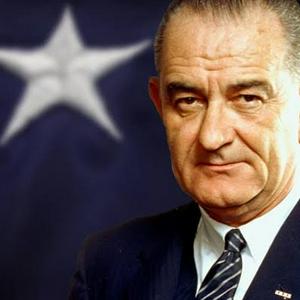
Get the free radio.net app
- Stations and podcasts to bookmark
- Stream via Wi-Fi or Bluetooth
- Supports Carplay & Android Auto
- Many other app features
Get the free radio.net app
- Stations and podcasts to bookmark
- Stream via Wi-Fi or Bluetooth
- Supports Carplay & Android Auto
- Many other app features


Lyndon B. Johnson - Great Speeches
download the app,
start listening.

